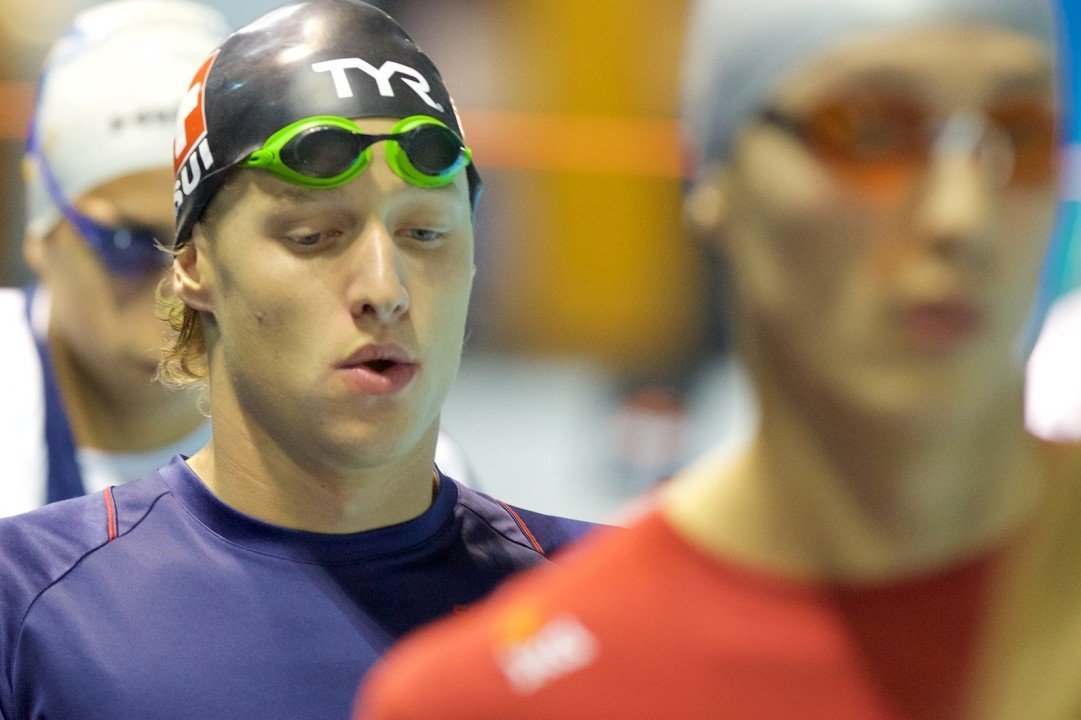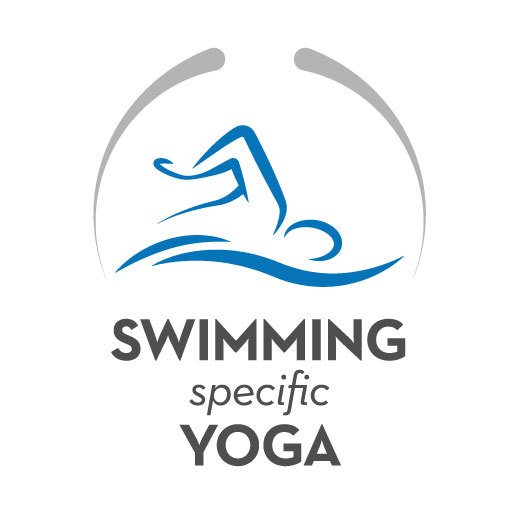A yoga practice for swimmers is an effective way to incorporate mental skills practice into your training regime.
Developing strong mental skills is an important aspect of achieving success in any sport. Even though this is an accepted fact many don’t take the time to focus on them. Often it is because of time restraints and the lack of practical ways to do so.
People commonly see yoga as a series of physical skills that improve strength, mobility and body awareness. A yoga practice for swimmers can also be an incredible way to work on your mental skills while developing your physical abilities.
Mental Skills for Swimmers
In his book Mental Skills for Competitive Swimmers sports psychologist Dr. John Hogg lists several key skills swimmers need to help create an ideal performance state.
A yoga practice for swimmers is a practical way to develop these:
- Self-Awareness
- Relaxation
- Self-Talk
- Visualization (Imagery)
- Attentional control
Self-Awareness
Yoga is a mindful practice strengthens your awareness of the present moment. This increases your ability to recognize thought patterns and responses in a non-judgmental way.
This type of awareness fosters insight and self-acceptance enabling you to make appropriate positive changes with greater confidence and ease.
We begin swimming-specific yoga classes by focusing on the present moment through your breath and body awareness. During a practice you return to that focus creating a stronger connection to the present moment.
Relaxation
Practicing yoga enhances the ability to relax both the mind and the body. Dr. Hogg explains the connection between the mind and the body is an important one;
“Every change in your mental and emotional states is consciously or unconsciously accompanied by a change in your physical state and vice versa (Hogg, 1995, p. 38).”
He encourages the use of relaxation techniques that focus on both the body and the mind;
“Learn relaxation techniques whether these are muscle to mind approaches (controlled breathing; progressive relaxation techniques) or mind to muscle approaches (Hogg, 1995, p 38).”
Focusing on the past or future often causes stress. A mindful practice can be a way to help relieve that tension.
When a yoga practice for swimmers is taught in a purposeful manner the use of different poses and sequences allow your body to relax with greater ease.
You also learn different breathing techniques (pranayama) that can calm both the mind and body.
Other elements in a yoga practice for swimmers that fosters greater relaxation include body scanning and progressive relaxation. Both develop a stronger mind-body connection increasing your ability to unwind.
Self-Talk
“Anytime you are thinking about something you are in a sense talking to yourself (Hogg, 1995, p. 51).”
A yoga practice designed for swimmers helps develop self-talk in different ways. Initially working on this skill involves self-awareness and an understanding of how you speak to yourself.
Self-talk can have both positive and negative effects on your mental state. It is important to understand the words that create each response.
The next step is adjusting your responses to those thoughts helping to develop and reinforce positive self-talk.
During your yoga practice you face situations that test you both physically and mentally. The awareness of your self-talk increases during these challenges. Being mindful of your thoughts gives you the ability to lengthen the time between stimulus and response. This time allows you to change negative self-talk and reinforce positive self-talk.
Visualization
Many studies show there is a powerful connection between visualization performance.
Swimming-specific yoga classes use different techniques to improve imagery. The first is focusing on images that tend to be easier to picture.
As an example is a three-part breath. This breathing technique has a wave like rhythm and motion. While performing this breath you picture the breath moving like waves in the ocean.
More specific visualization practices can also be used at the end of a session.
During this time you can visualize your pre-race approach. You not only visualize the ideal situation, but also how to manage challenges that may present themselves.
When doing this be curious of what skills from your yoga practice can help you prepare for a peak performance.
An example is if you are prone to experiencing a significant amount of pre-race anxiety visualize a pose or breathing technique you can use to relax before competing.
Attentional Control
As the ravenous leopard needs to stealthily focus on its prey in order to feast the athlete, hungry for excellence, must totally concentrate on the task at hand if success is to be devoured. (Cheng, H.)
Attentional control is developing the ability to focus on the task at hand.
As mentioned earlier in this article yoga is a mindful practice. Mindfulness is a practice of returning.
Inevitably your mind will wander. A mindful practice is about noticing when it does, accepting that it did and returning to the present moment. In other words learning to control your attention.
The process of returning is at the core of a swimming-specific yoga practice.
One way to develop this ability is strengthening the connection to your breath. Use your breath as a home base for your attention and when you notice it stray return back to your home base. By connecting movement and breath you are practicing the ability to be fully engaged with the task at hand.
…
References:
Hogg, J.M. Mental Skills for Competitive Swimmers. Edmonton: Sport Excel Publishing Inc., 1995.
..
This Yoga for Swimmers article is brought to you by Swimming-Specific Yoga the world’s top resource for online yoga classes and content designed for swimmers and multi-sport athletes.
…
Sign up here to receive the Swimming Specific Yoga newsletter
The newsletter includes information on how yoga can enhance both your swimming performance and your wellness.
…
What people are saying about Swimming-Specific Yoga
…
Visit our website swimminspecificyoga.com to take a 7 day free trial of the Swimming-Specific Yoga Online Studio membership.
With your membership you gain access to over 100 classes ranging from 15-60 minutes that have been created for the specific needs of swimmers.


